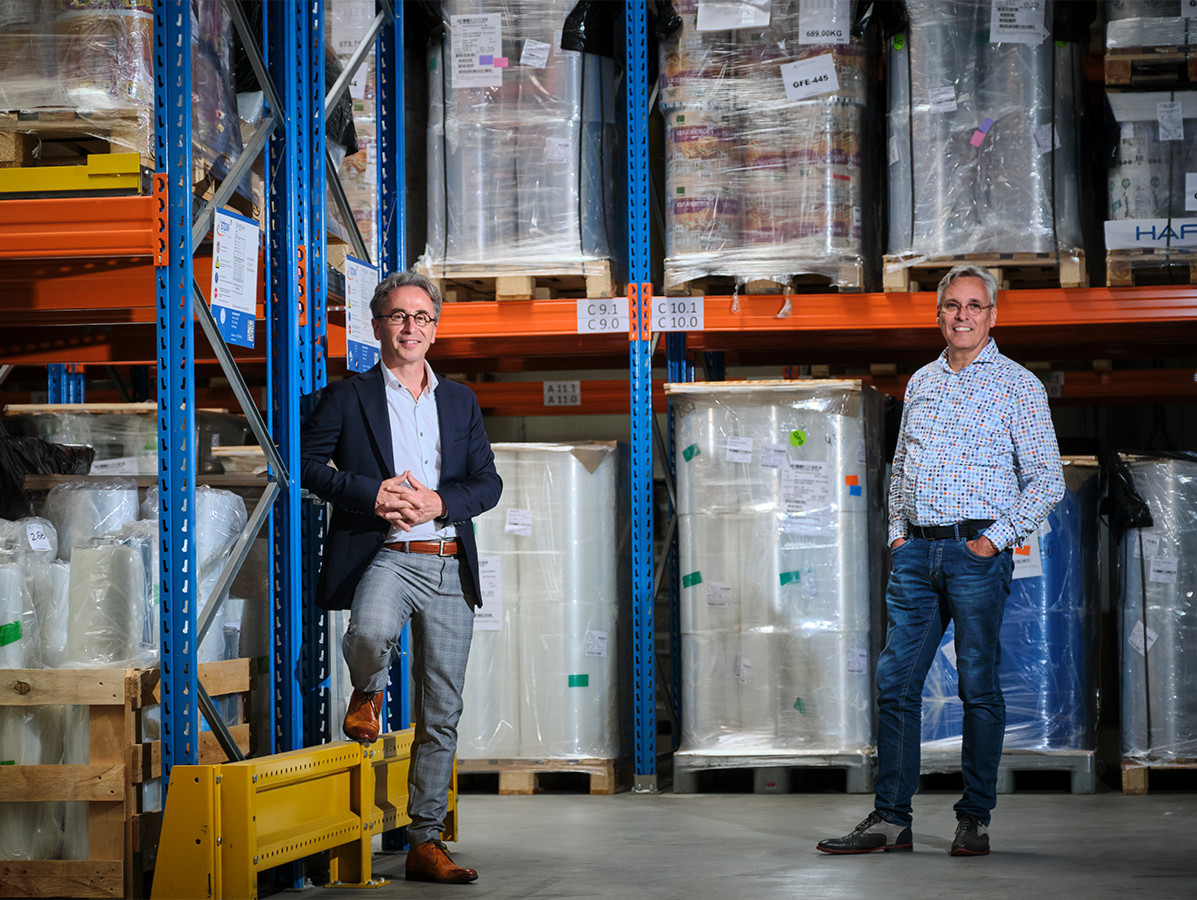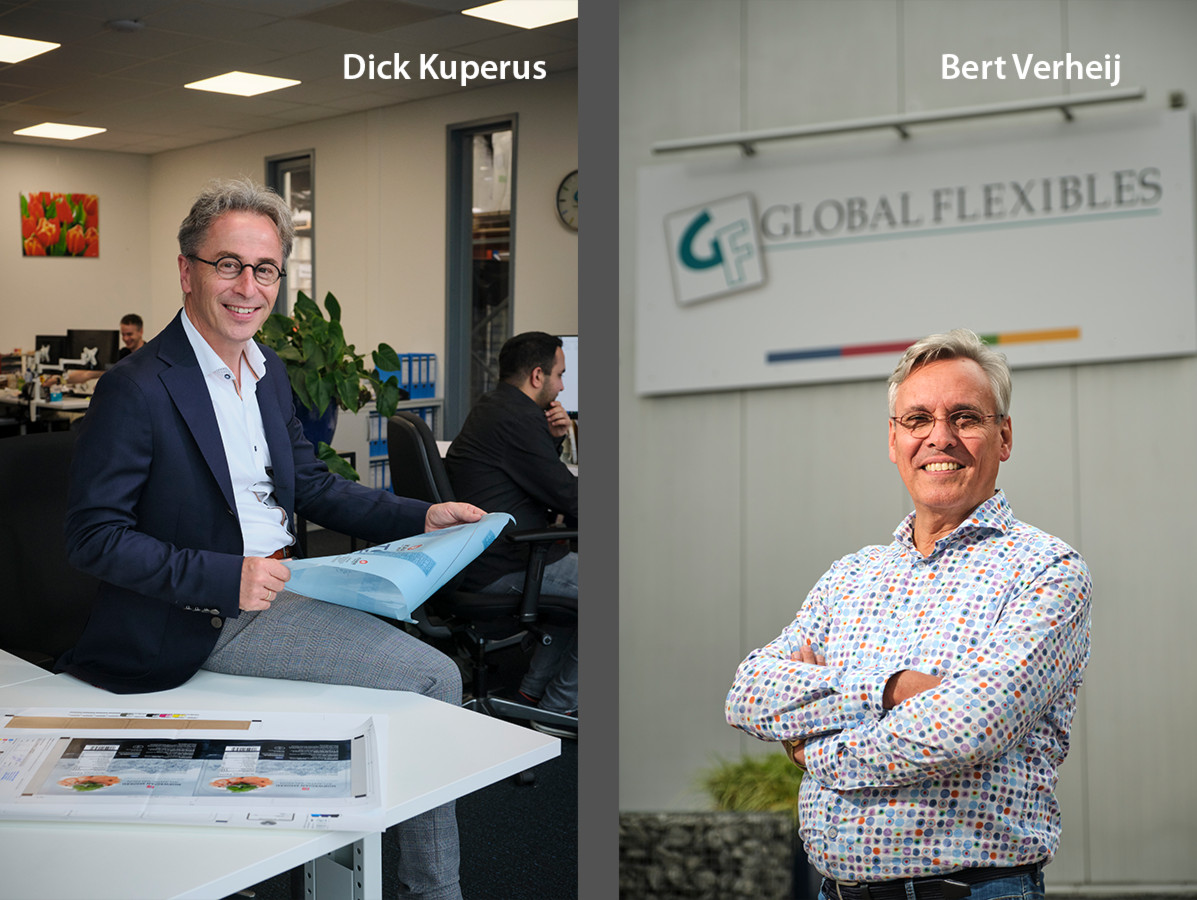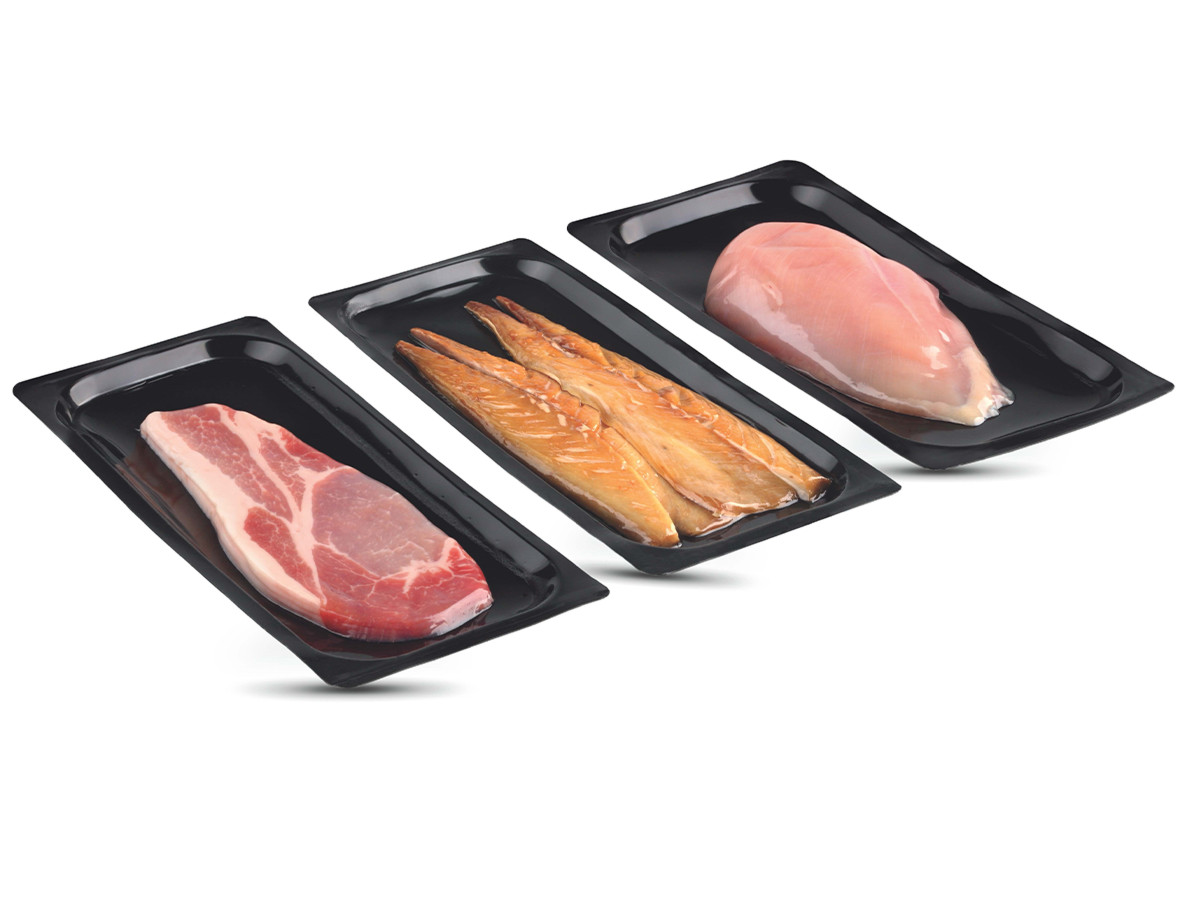
Global Flexibles from Krimpen a/d IJssel will soon be marketing a special vacuum and skin film. A packaging film with proven bacterial inhibition that can ensure a longer shelf life of fish, meat and cheese, and less food waste. This innovation offers the food industry fascinating opportunities.
When packaging food, preventing bacterial growth is a very important issue. E-coli, but also Staphylococcus Aurus (resulting in food poisoning), Listeria and Salmonella are a headache for many food companies. After all, these are the causes of spoilage, loss of sales and illness. But how do you prevent bacteria from striking? "We started thinking about how we could inhibit bacteria in packaging film. Together with our production partner we have worked hard on a solution that seems to work," says Bert Verheij, managing director Global Flexibles Europe BV.

Dick Kuperus: 'The patented technology has already proven itself on several fronts'.
Bert Verheij: 'For a good result with foodstuffs, for example, it is important that there is full contact between film and product on the contact surface'
Bert explains how the new packaging inhibits the effect of bacteria: "A special additive on a natural basis ensures that bacteria cannot attach themselves. They are isolated, as it were. This prevents a build-up or biofilm, and the bacteria die."
"In no time, the contaminated packaging turned out to be 99.999% bacteria-free."
Enthusiastically, Bert explains that the organoleptic test results (smell, colour and taste) were good after a few days. "That is nice. But our customers want to know in concrete terms what the difference is between the standard packaging and this new development. For example, what the germination percentage is on day one, day ten and day fifteen. That is why we had the newly developed foil tested extensively in laboratories. In the laboratory, the foil was contaminated with E-coli or Staphylococcus Aurus. In no time, it turned out to be 99.999% bacteria-free. Log 3, in other words! Various organoleptic tests were carried out, with perfect results." He does mention a few important conditions: "In our production process, we naturally ensure the best possible mixing of the additive in our film. In addition, for a good result with foodstuffs, for example, it is important that there is full contact between film and product on the contact surface. Because the technology is only effective on the surface of homogeneous products."
"Opportunities for the food industry"

"We don't take any chances," sales manager Dick Kuperus continues the explanation. "When you bring an innovation to the market, you want to know all the facts and figures in order to convince your customers. That is important: knowing what you are doing. Actually, with the new technology we are applying a bit of hygiene in the packaging on a natural basis. Hygiene is extremely important in the food industry. Until now, a company could only influence clean products from the outside. With our development, we add more grip on hygiene ín the packaging. How unique is that!"
Now that the lab tests have confirmed the efficacy of the new packaging film, Global Flexibles is starting to test this special film in real-life food processing applications. They are doing this together with their production partner. The patented technique has already proven itself on several fronts; it is widely used in other areas. Think of all kinds of plastic products, such as refrigerator pipes, bottles, conveyor belts and profiles. Dick: "We are doing this for the first time with foil in the food industry and exclusively in our market. To increase the shelf life of fish, meat and cheese products, for example, and to reduce food waste."
"Our expectations are high", Bert and Dick conclude. "We see so many opportunities for our business relations!"
Source: foto’s ©Roel Dijkstra